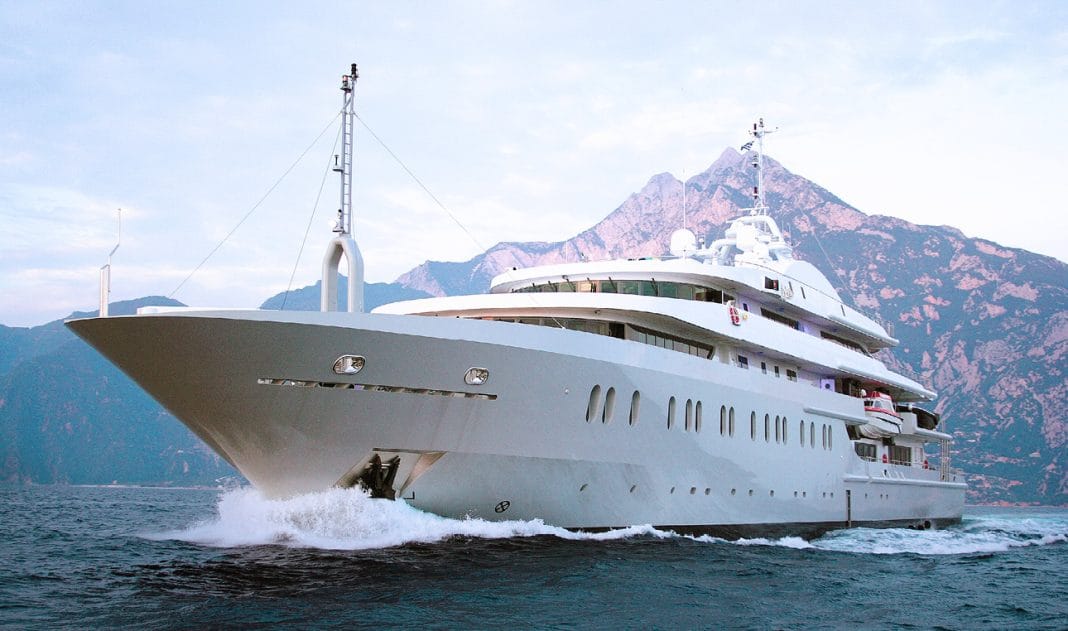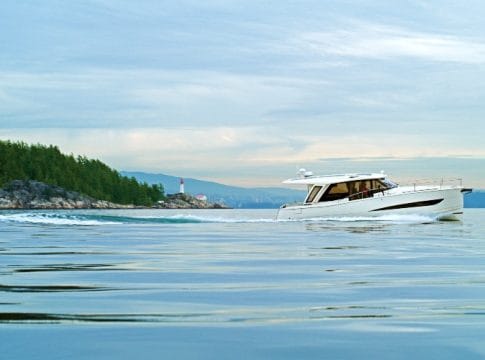When we first started the design of “ANNALIESSE” & “ALYSIA” in 2000, there were certain important issues that had to be addressed and dealt with, as it was the first time ever that anyone attempted to build SOLAS YACHTS.
More specifically, our major challenges were:
I. To apply SOLAS Regulations for Passenger Vessels on a Yacht, namely.:
a. Increased stability criteria requirements (Intact & Damage Stability)
b. Life Saving Equipment requirements (SOLAS- Approved Life & Rescue Boats and Cranes)
c. Fire Fighting Systems requirements (Fire Integrity & Insulation, A & B Class Doors, Fire Zones, Non-toxic & Non-combustible Materials, Hi-Fog System, etc.)
d. Increased Engineering requirements
e. Load Line requirements
II. To find Yacht Quality Equipment and Materials
A very important parameter to be taken into consideration is that back in 2000, the availability of yacht quality standard equipment and materials in the market was very limited. There is no comparison with the options available today.
Being the Designers of the Interiors, we did not wish to use imitation materials (wood-like, marble-like, etc.) but original materials. The saying “all that glitters is not gold” does not apply in this case. Everything should be what it appears to be.
So the design should “conceal” equipment such as the A Class doors, the B Class steel door frames but also the life and rescue cranes, etc.Additionally, the amount of wood allowed by Regulations had to be distributed using a “smart” design (Fire Load Calculations).
Moreover, large quantities of marble and other stones (no imitation materials) were used and this resulted in increased weight which affected the stability of the vessel. This was yet another issue to solve, given the demanding SOLAS requirements.

To sum things up, great efforts were made to find innovative design solutions, mostly for the interior constructions. Fire tests were carried out on alternative panels with wood veneer lining while special, non-toxic and non-combustible, materials (even special glues) were used in order to achieve the desired outcome.
The Showboats Trendsetter Award won by “ALYSIA” in 2006 confirmed the value of this new product in the Yacht Market. After that, MCA put together a new set of rules to address the new type of yacht (Passenger Yacht) and the various marine manufacturers moved on to the production of dedicated equipment and materials which are now available and make the designers’ lives easier.
Alpha Marine Ltd. has always handled the negotiations with the Classification Societies and the Flag Authorities on behalf of either the Owner or the Shipyard.
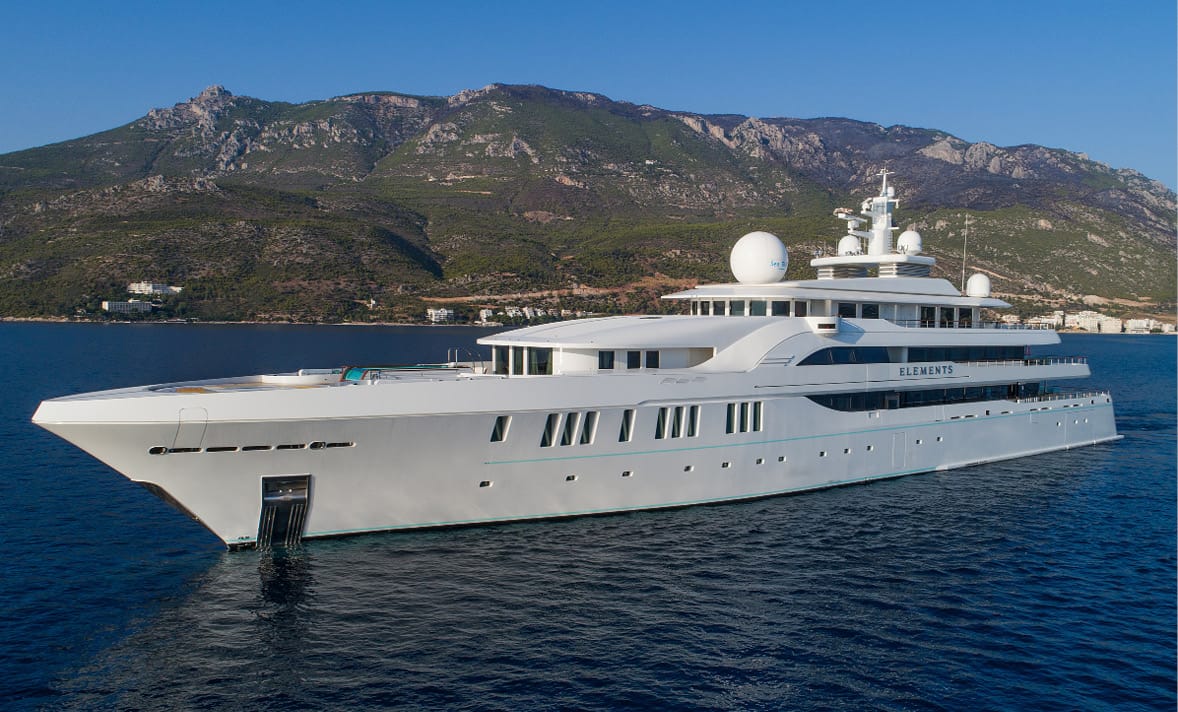
This collaboration begins with the design and the approvals, continues with the supervision of the construction and finishes with the issuance of the vessel’s certificates.
The reason why Alpha Marine has always undertaken the collaboration with the Classification Societies is that Yacht Design – as a rule – requires advanced solutions and the collaboration between the designer and the Classification Society is vital for their successful implementation. The relationship between the Designers and the Classification Societies is a never-ending battle – especially in Yacht Design – which I would characterize as “a perpetual amicable civil war.”
During the design phase, we use design software for the analysis of all parameters, such as structural stability (even the probabilistic method for damage stability), hydrodynamic optimization, CFD Analysis, seakeeping, speed-propulsion, power prediction, cutting tapes, nesting and 3D coordination design. Time planning programs are also used during construction in order to secure that the project is not behind schedule.
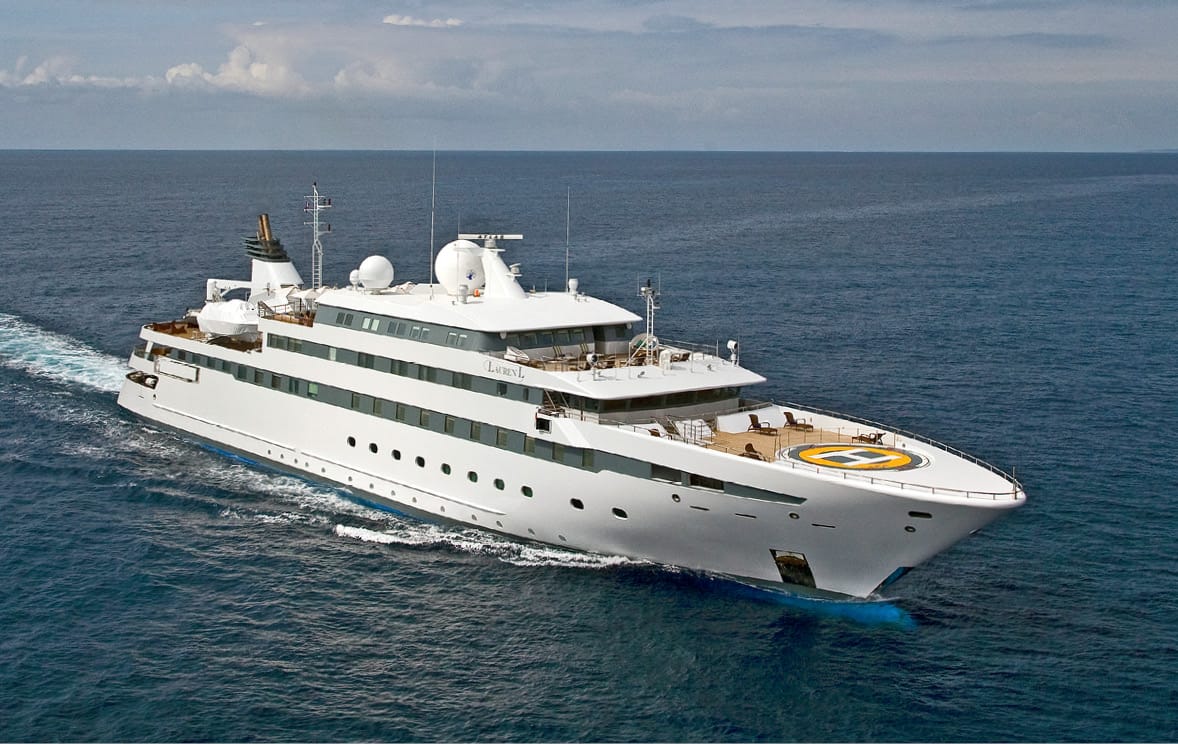
Εach choice made by the Designer has an impact on all aspects of yacht building besides her aesthetics, such as the structure, machinery, stability, hydrodynamic performance, sea-keeping, safety, comfort, etc.
The choices are and should be continuously verified. The use of advanced software supported by the right hardware contributes to making faster and more accurate calculations and decisions.
It is an indisputable fact that the “whole” (what the ancient Greeks famously termed “olon”) is not just the sum of its parameters, because, as a coherent body, the “whole” interacts with its components and vice-versa. At present, efforts are being made to integrate into the design parameters of immense importance which are difficult to modelise in mathematical terms, such as social features, environmental impact cost, life cycle cost, etc and also to create the right software to encompass the above. We have now moved to the era of the Holistic Approach to Ship and Yacht Design which addresses the new challenges of our time.
Below is a list of the yachts that Alpha Marine has designed based on SOLAS Regulations (Passenger Ships able to transport over 12 passengers).
NEW BUILDS – SOLAS MEGA YACHTS
“ANNALIESSE” (2004) & “ALYSIA” (2005) 85.30m
“100 M PROJECT” (2008) (the project was never finalised due to the tragic loss of Owner Andreas D. Liveras)
“ELEMENTS” (2018) 80.00m
MAJOR REFITS – SOLAS MEGA YACHTS
“TURAMA” (2004) 116.40m
“LAUREN L” (2008) 90.00m
“MOONLIGHT II” ex “ALYSIA” (2014-5) 92.00m (ex. 85.30m)
MAJOR REFITS – MINI CRUISER
“CLELIA” (2009) 88.30m
PROJECT MANAGEMENT – SOLAS MEGA YACHT
“MARYAH” (2015) 122.00m
PROJECT MANAGEMENT – SUPER PASSENGER YACHT
SUPER PASSENGER YACHT 91.00m
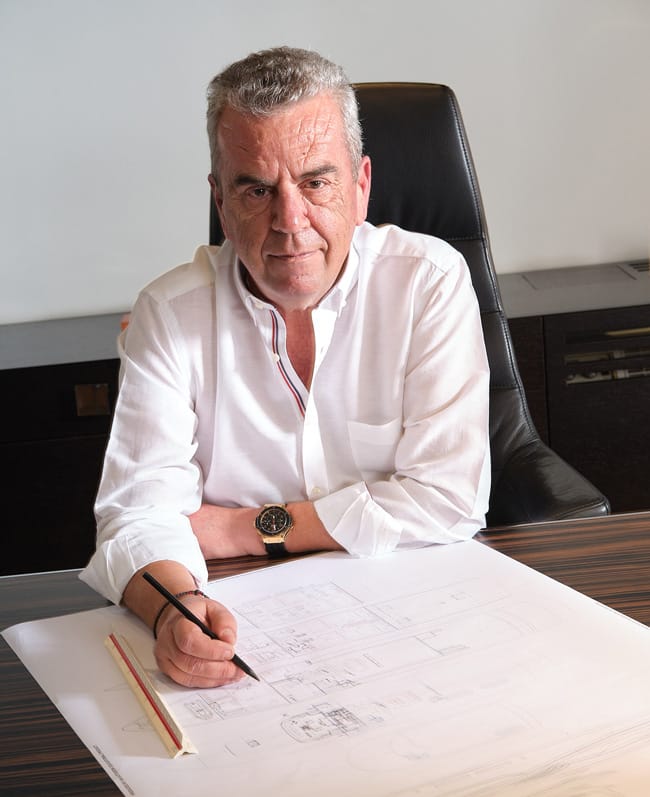 Nikos Dafnias* is the founder and Managing Director of ALPHA MARINE LTD
Nikos Dafnias* is the founder and Managing Director of ALPHA MARINE LTD
Alpha Marine is currently involved in designing the aforementioned 91m Super Yacht.



